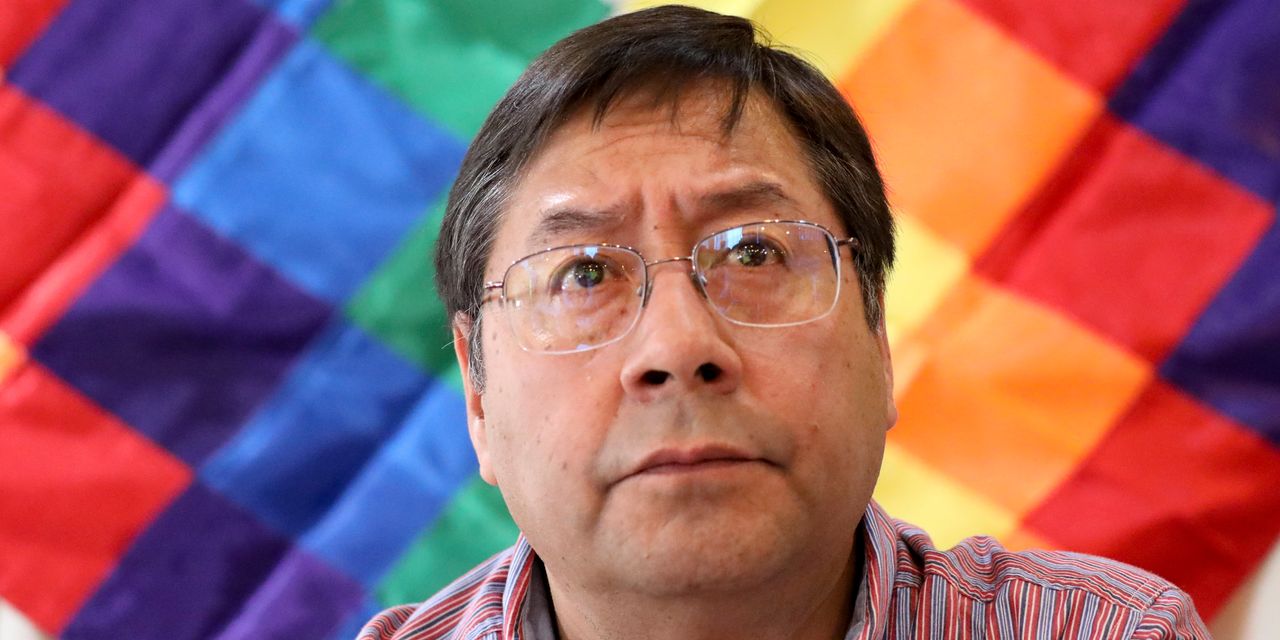By Mary Anastasia O’Grady
Throughout Evo Morales’s practically 14 years as president, Bolivia grew into one of many Western Hemisphere’s most insidious threats to democracy. Now, a 12 months after his resignation, there’s a hazard that his Motion Towards Socialism occasion, generally known as MAS, may return to energy—although a majority of Bolivians don’t help it.
One authentic fear amongst Latin America watchers is that if the MAS occasion, with Evo as its de facto boss, makes its means again into the presidential palace by means of the poll field on Oct. 18, there received’t be one other truthful election in a really very long time.
Mr. Morales has been secretary basic of Bolivia’s federation of coca growers since 1996. He held that publish all through his tenure as Bolivia’s chief government, and underneath his leadership the nation turned a narco state and a participant in transnational crime.
Mr. Morales is a protégé of Fidel Castro. As Overseas Minister Karen Longarictold the Bolivian newspaper Pagina Siete in January, “the connection with Venezuela, Nicaragua and Cuba,” which turned shut Bolivian allies in the course of the Morales presidency, “was geared toward consolidating an ideological present that had a geopolitical undertaking.” Iran was one other good friend of Mr. Morales, an extra motive why a MAS victory could be a setback for the area.
Mr. Morales was approaching his time period restrict when he organized a 2016 referendum on whether or not he needs to be allowed to run for a fourth time period. Bolivians mentioned no. So in 2017 his hand-picked Supreme Courtroom abolished time period limits. Utilizing that call, he ran once more final 12 months.
Mr. Morales declared victory in that election. However proof—together with an audit by the Group of American States—supported allegations that MAS dedicated fraud. Bolivians went to the streets for 3 weeks to protest the federal government’s soiled tips. When Mr. Morales misplaced the help of the military and the nationwide police, he resigned and fled the nation. Bolivia has accused him of terrorism and human-rights violations.
Mexico’s President Andrés Manuel López Obrador gave the Bolivian refuge. That raised eyebrows in Mexico as a result of that nation has been torn aside by drug-cartel violence and Mr. Morales’s federation of coca growers is likely one of the area’s largest producers and distributors of cocaine.
A month later the newly elected peronista authorities in Argentina granted Mr. Morales refugee standing. As per constitutional succession, former Sen. Jeanine Áñez, of the Democrat Social Motion occasion, is now Bolivia’s interim president.
Mr. Morales is operating the marketing campaign of MAS presidential candidate Luis Arce from throughout the border. Polls have Mr. Arce main the race however with solely about 44% of whole anticipated legitimate votes. (Voting is obligatory, however clean votes are subtracted from the overall.) Behind him by about 10 factors is former president Carlos Mesa of the Revolutionary Left Entrance occasion. Revolutionary Nationalist Motion occasion candidate Luis Camacho is subsequent with 15%. Two different candidates share one other 5%.
Ms. Áñez withdrew from the race final month in an effort to unify the anti-MAS vote. However since a first-round victory requires solely 40% of legitimate votes forged with a 10-point unfold over the second-place finisher, and the opposition stays cut up, a first-round win by Mr. Arce is an actual risk.
There are eerie parallels with Nicaragua, the place Daniel Ortega dominated as a dictator from 1979, when his Sandinista military overthrew Anastasio Somoza, till he was voted out in 1990. Mr. Ortega returned to energy in 2006 by making the most of a divided opposition to win an election.
The “reformed” Mr. Ortega didn’t transfer towards enterprise however as a substitute shaped partnerships with it. A commodity increase and Venezuelan oil shipments financed with debt put the wind at his again whereas he consolidated energy institutionally. When the cash ran out and Nicaraguans determined he ought to go, they discovered themselves again in a dictatorship.
Mr. Morales pursued the same course in Bolivia in the course of the days of excessive power and soybean costs. As Bolivian economist Mauricio Rios Garcia defined in a Nov. 13, 2019, commentary on his web site, excessive commodity costs “allowed Morales to have a finances four instances larger than that of the ‘neoliberal’ period of the 90s.” It was a spending enhance “like by no means earlier than within the historical past of the nation,” and Mr. Morales used it to “acquire powers over the economic system to the detriment of financial freedom.” Mr. Morales ended central financial institution independence and “intervened within the banking and monetary system in 2013 to grant considerable artificially low cost credit score.” I’d add that American and European drug customers additionally despatched a gusher of narco-dollars into Evo’s economic system and his MAS occasion’s radical causes.
Bolivians have been fortunate to do away with Mr. Morales once they did, and maybe solely as a result of his consolidation of energy didn’t sufficiently purge the army and nationwide police. If his MAS occasion returns to the presidency, he received’t make the identical mistake twice.
Source: The Wall Street Journal.

